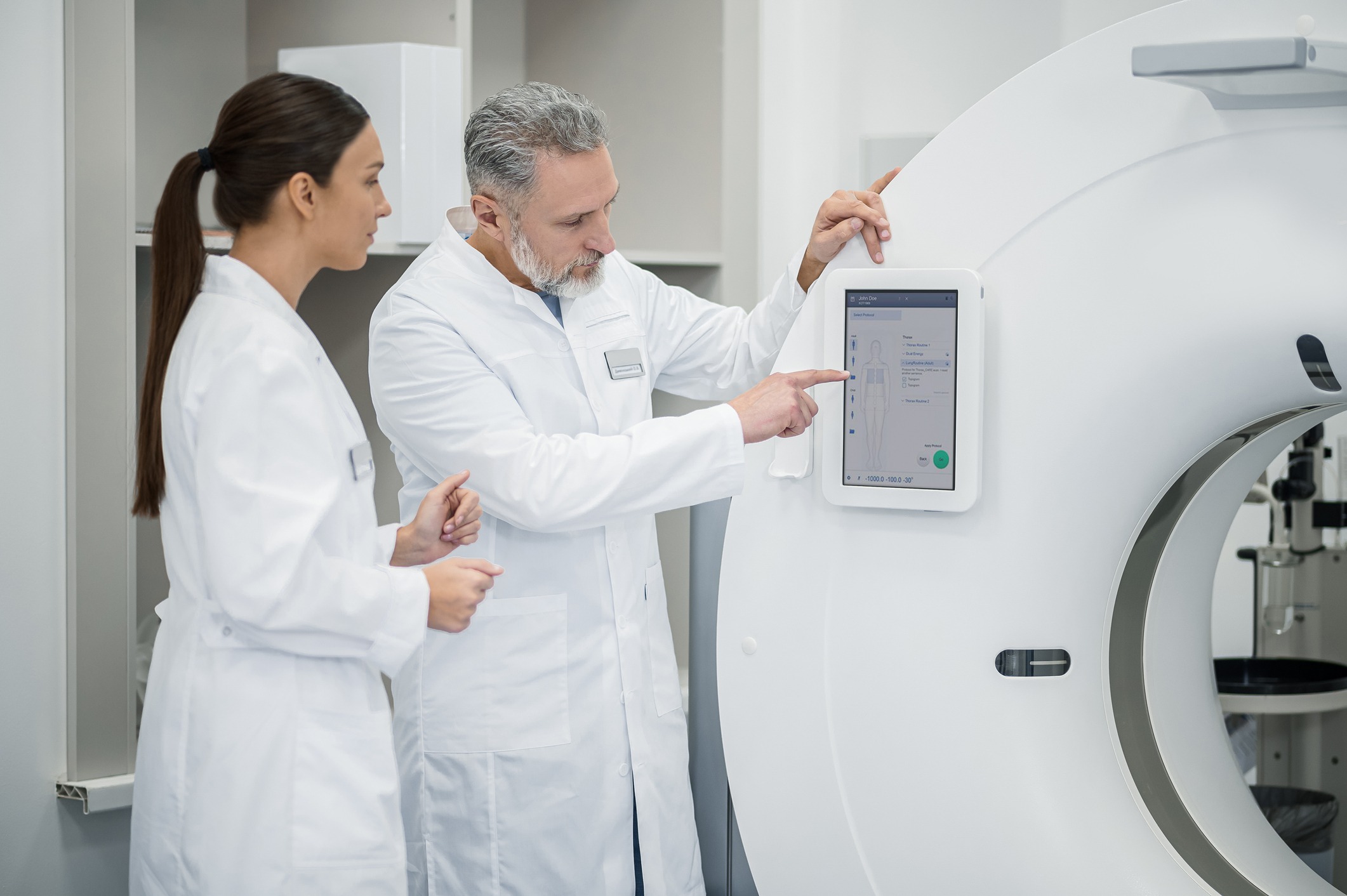The importance of technology for the oncology sector

Publicado em 19/09/2023 • News • English
On August 29th and 30th, ABIMED took part in the Workshop on the Integration of Specialized Oncology Centres and Units – Cacons and Unacons, held at the Chamber of Deputies in Brasília (DF). On the first day, the organization was represented by its president, Fernando Silveira Filho, on the panel “Health Technologies for Oncology”, which analyzed advances in the diagnosis and treatment of cancer patients, as well as future prospects.
Other speakers included Congressman Weliton Prado (Solidariedade-MG), Luiz Sérgio Pereira Grillo Junior, director of the Brazilian Society of Interventional Radiology (SOBRICE); Sérgio Eduardo Alonso Araújo, from Hospital Israelita Albert Einstein; Maurício Azevedo, Medical Affairs Manager at Johnson & Johnson; Manuel Coelho, Innovations Leader at Siemens Healthineers; Suzane Holden, Vice President of Corporate Accounts, and Chengetayi Pswarayi, from Market Access & Public Affairs. The moderator was Senator Hiran Gonçalves, president of the Joint Parliamentary Front for Medicine (FPMED).
The president of ABIMED highlighted the support that the association has always given to the fight against cancer. He highlighted the importance of properly allocating government resources to these initiatives and the incorporation of technology, especially medical devices, eliminating barriers for those operating in the segment. “Technology can, in fact, bring improvements in the management of health resources, as well as providing people with a better quality of life and longevity,” he said.
The representative of Corporate Accounts, from the United Kingdom, spoke of the success of carrying out a genetic sequence with a diagnosis within 24 hours. The Johnson & Johnson manager drew attention to the 700 thousand new cases of cancer every year in Brazil. “Worse than not treating is treating inappropriately. We need to have a comprehensive view, be a great team and identify where the centrality of the oncology patient lies,” he said.
Sergio Araújo, from Hospital Israelita Albert Einstein, presented information on robotic surgery and its precision in cases of prostate cancer, which affects 72 thousand men every year, killing 17 thousand of them. For Congressman Weliton Prado, the oncology sector presents a promising scenario in the country. “I think we could have the first proton radiotherapy machines soon. The technology is available and it’s here to stay.”
Technological incorporation in health – On the second day of the Workshop, ABIMED mediated the panel “Technological Incorporation in Health – Equipment and Devices”, which brought together representatives of the sector to present ideas for introducing innovations in health in order to reach the greatest possible number of beneficiaries. The panel was attended by oncologist Alessandro Campolina; Luciene Bonan, director of DGITS-SECTICS; Murilo Contó, representative of Boston Scientific; Marcos Paulo Silva, superintendent of the Brazilian Association of Health Plans (ABRAMGE); Rodrigo Pinheiro, vice-president of the Brazilian Society of Oncologic Surgery; Tania Yuba, representing Jonhson & Jonhson Med Tech and Miyuki Goto, from the Brazilian Medical Association.
The pillars for a sustainable HTA process were the focus of the J&J representative’s speech. Murilo Contó talked about the differences in health technology assessment when it involves medicines or medical devices. He praised ABIMED’s initiative, which is proposing a different method for analyzing devices and guidelines. “Either we revise the Ministry of Health’s methodological guidelines, which are used both for preparing public health documentation and for complementary health, or we create a new guideline focused on medical devices,” he suggested. For him, significant opportunities have been lost in favor of patients and the system.
The president of ABIMED pointed out that there is a management bottleneck, as there is a large amount of resources when you look at the percentage of Brazil’s GDP spent on health compared to other countries in the Organization for Economic Cooperation and Development (OECD). “We have great opportunities for improvement when it comes to management,” he said.
The vice president of the SBCO presented the challenges of oncological care. “The earlier we identify windows of opportunity for treatment, the lower the costs for health systems, the greater the chance of success and the more lives we save.”
According to Silveira Filho, it was very important that the event took place with the support of the Chamber of Deputies. “Putting the discussion into Congress means that there is a greater chance of approval and success in generating more and more resources to fight cancer,” he said.

 Portuguese
Portuguese
 Spanish
Spanish
 English
English






















